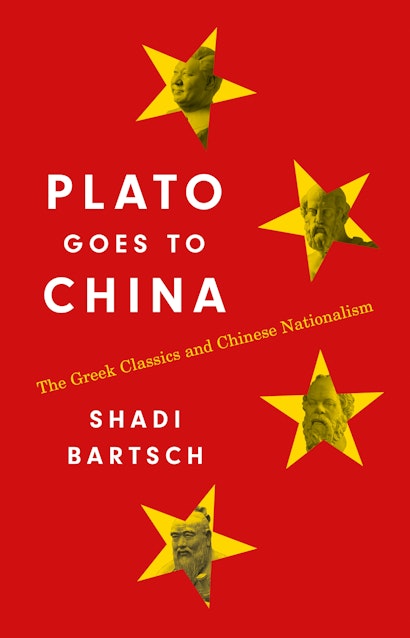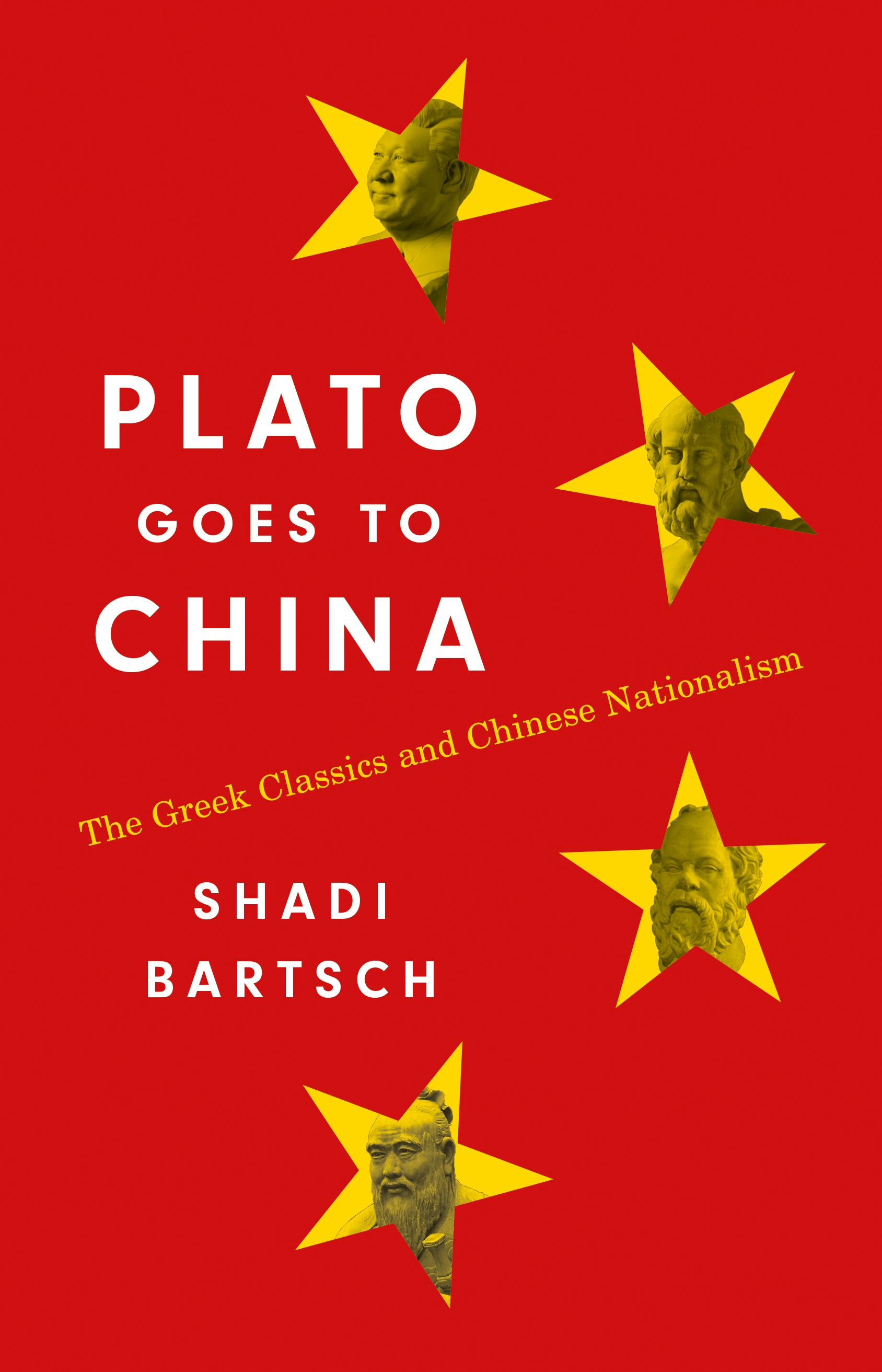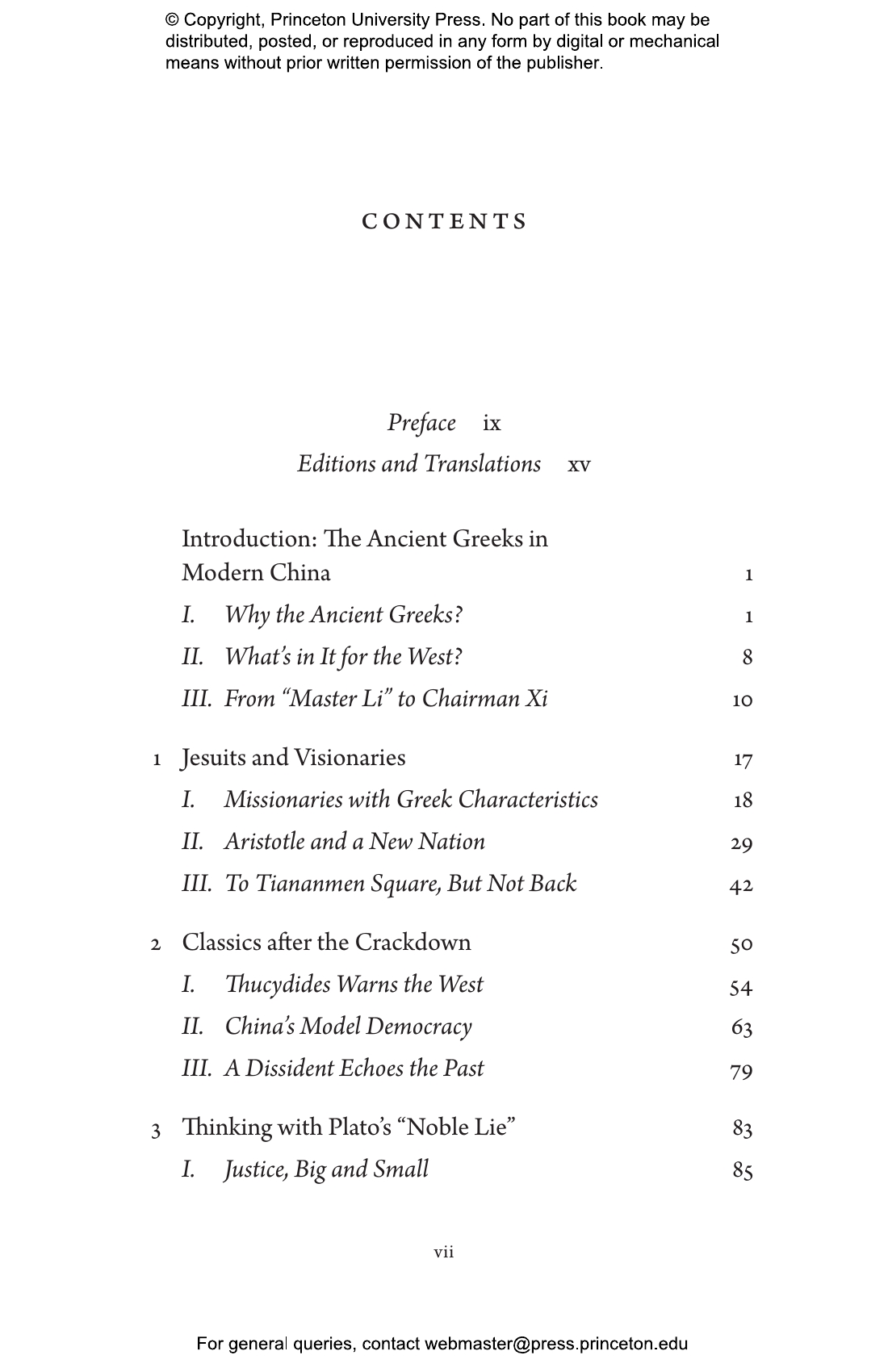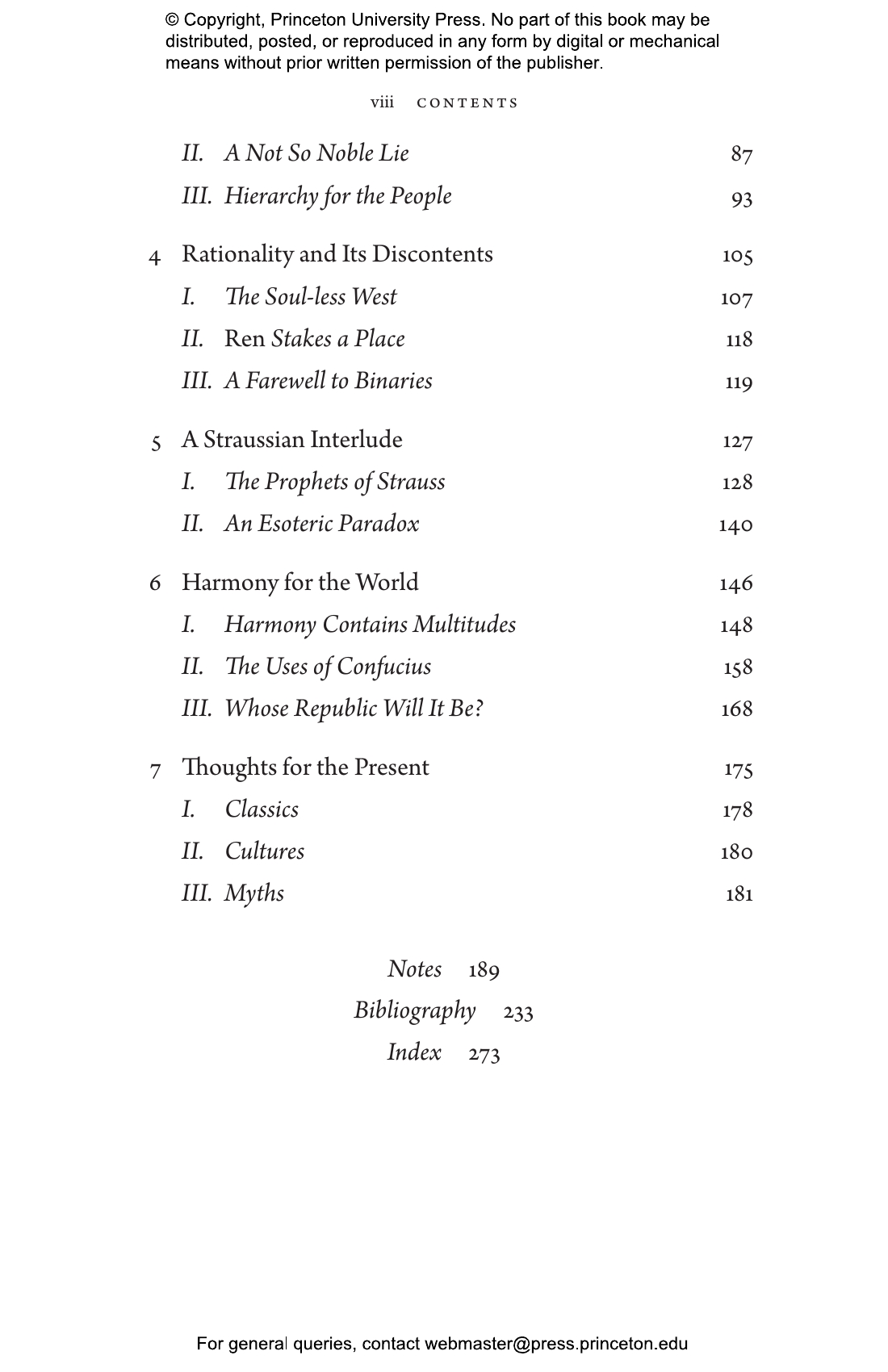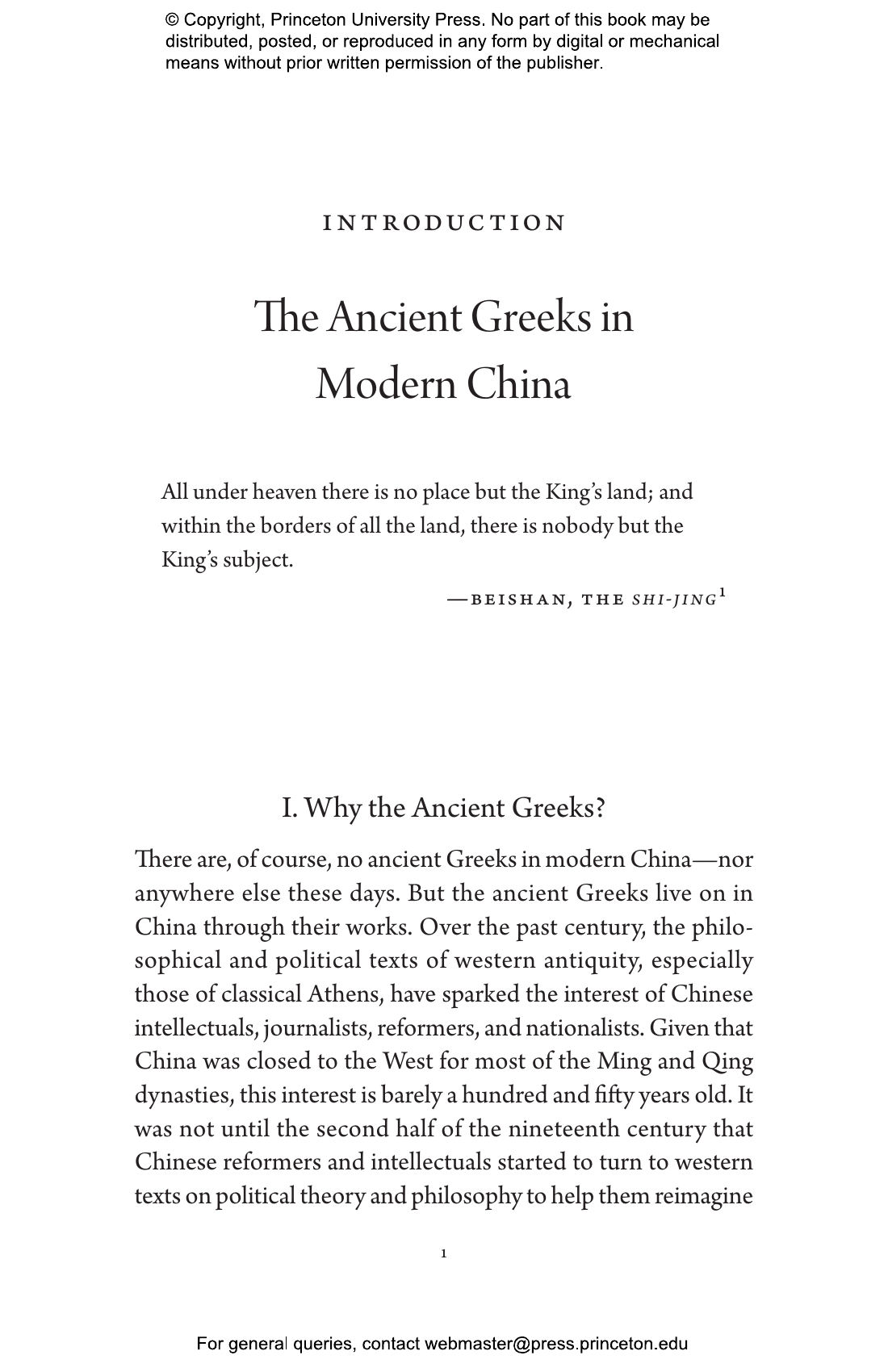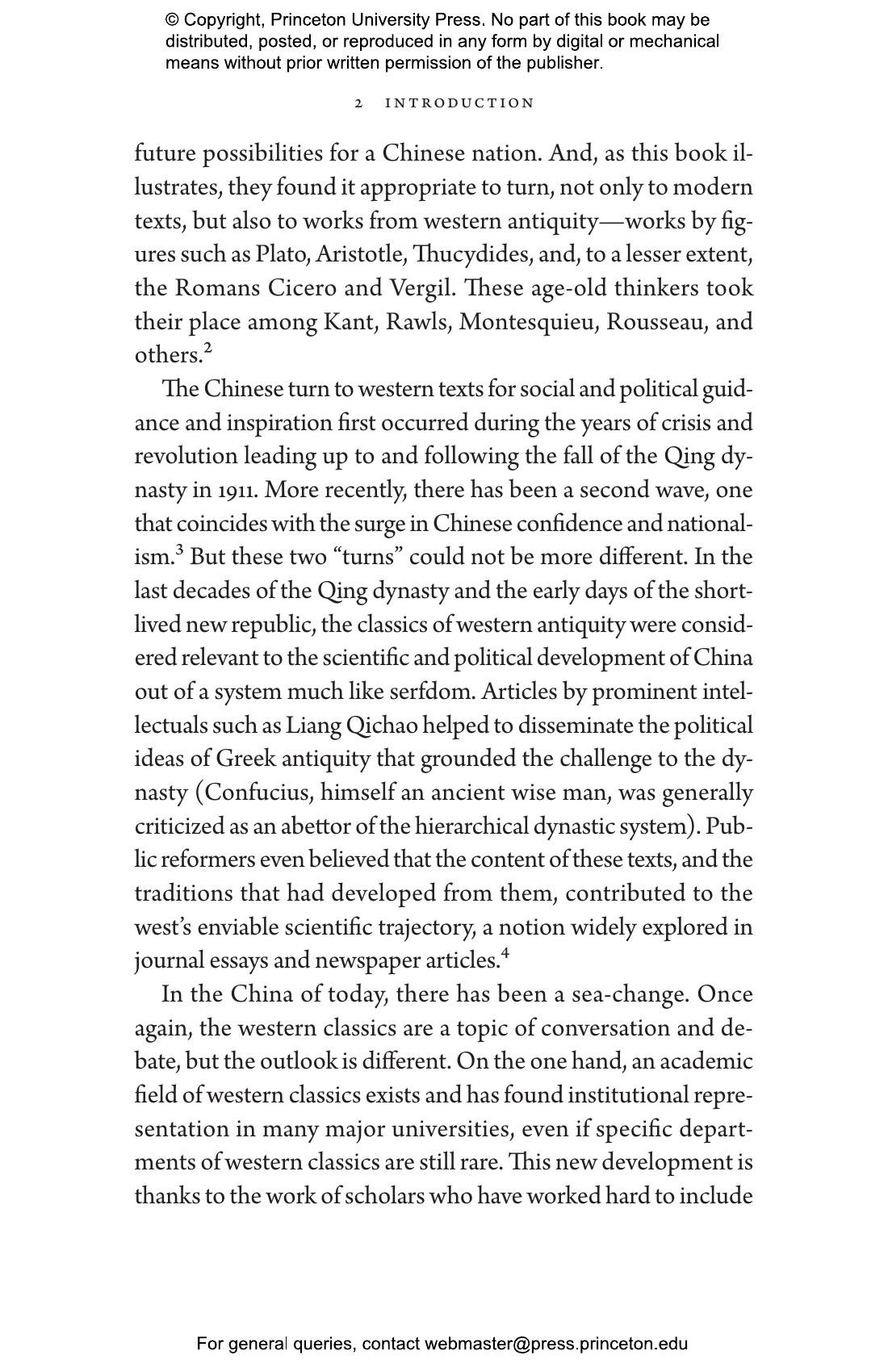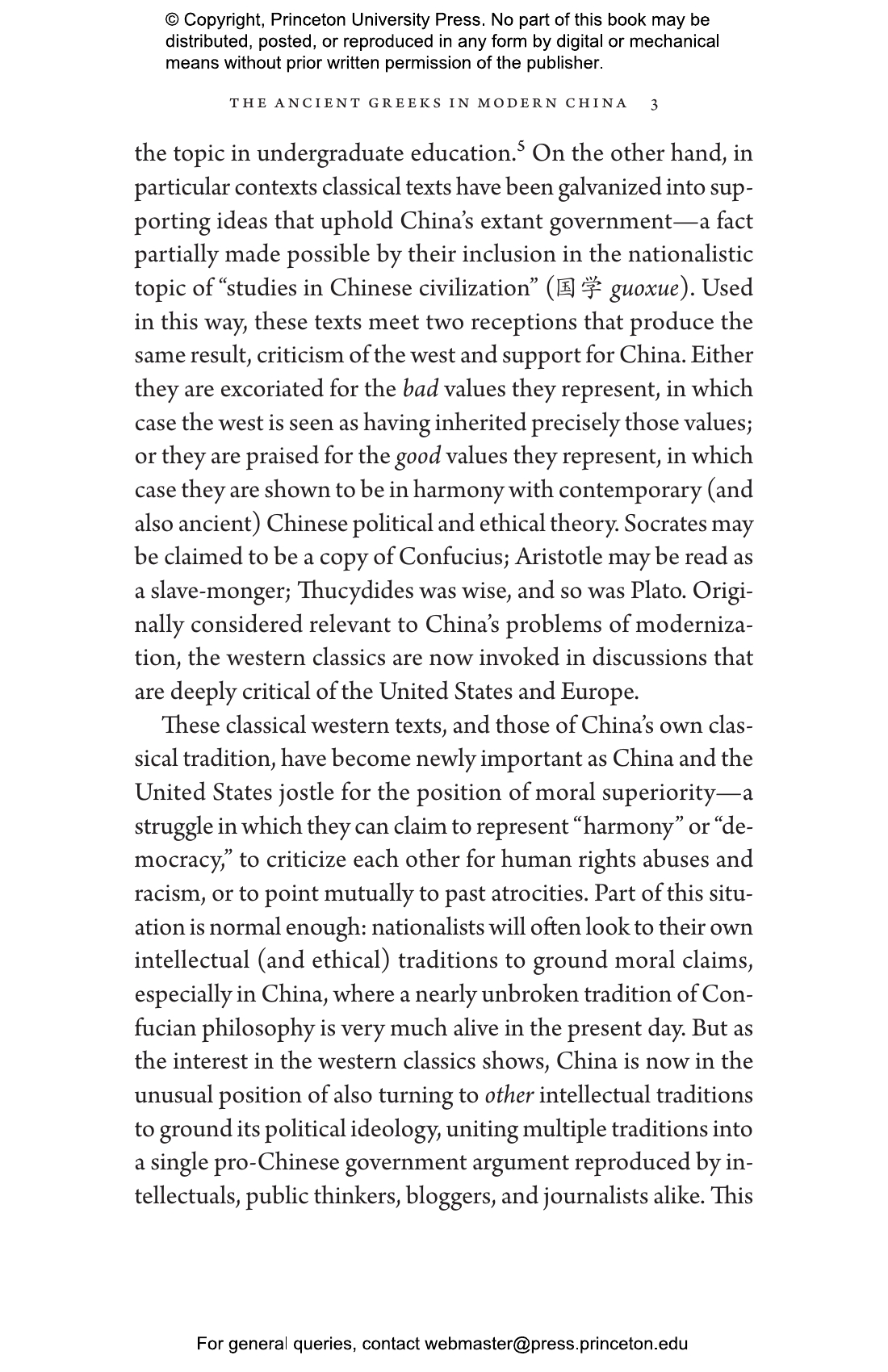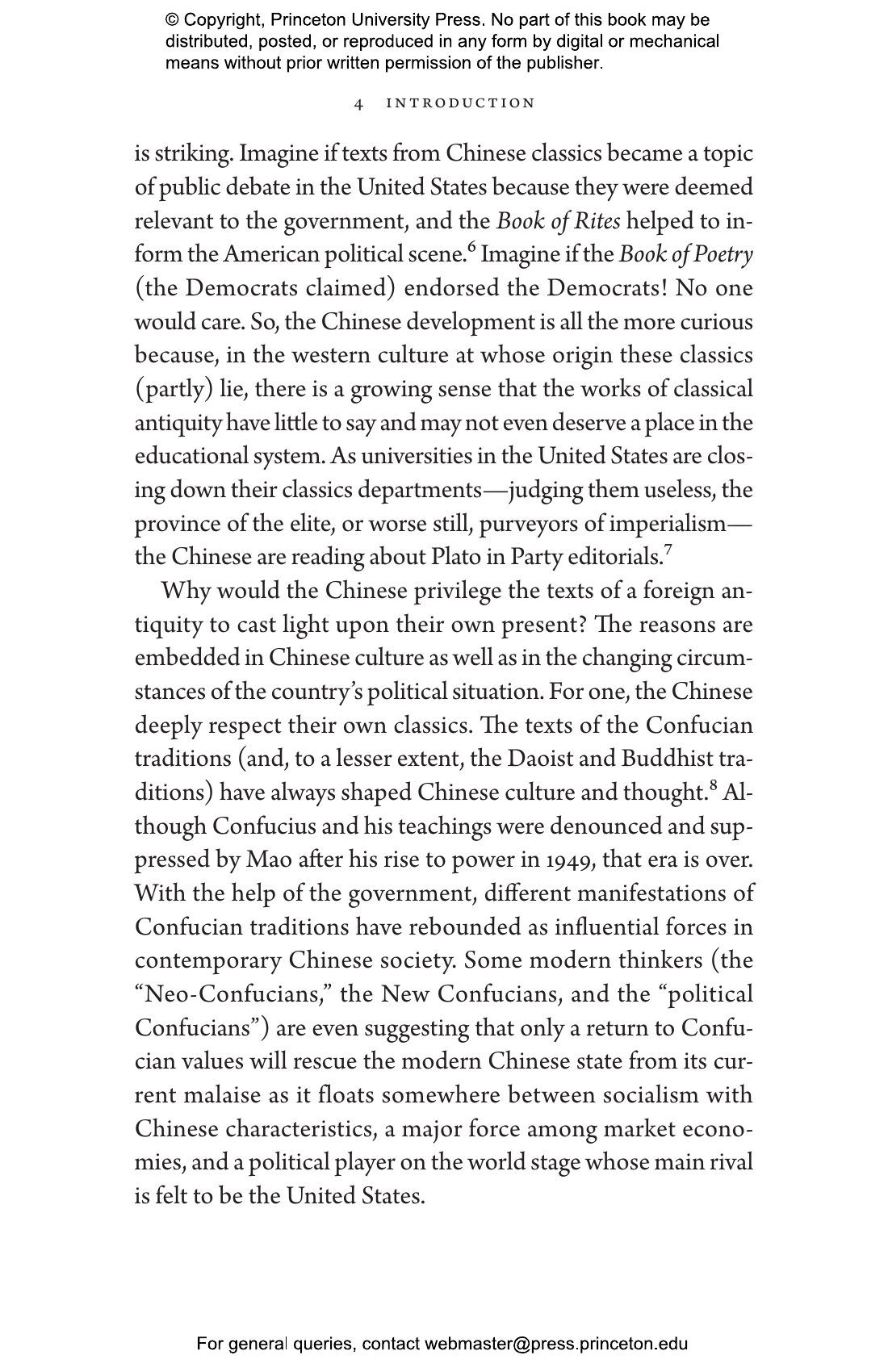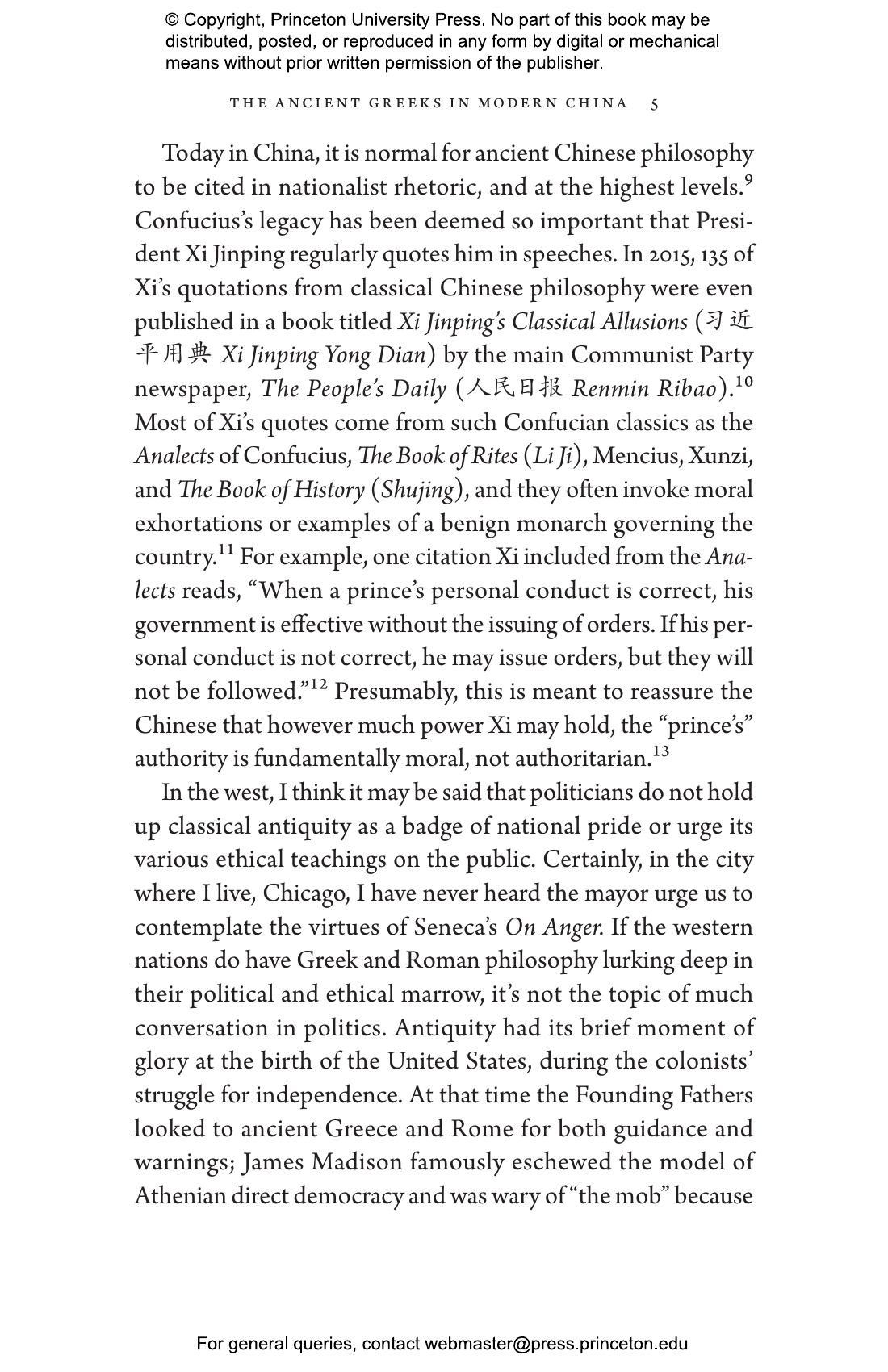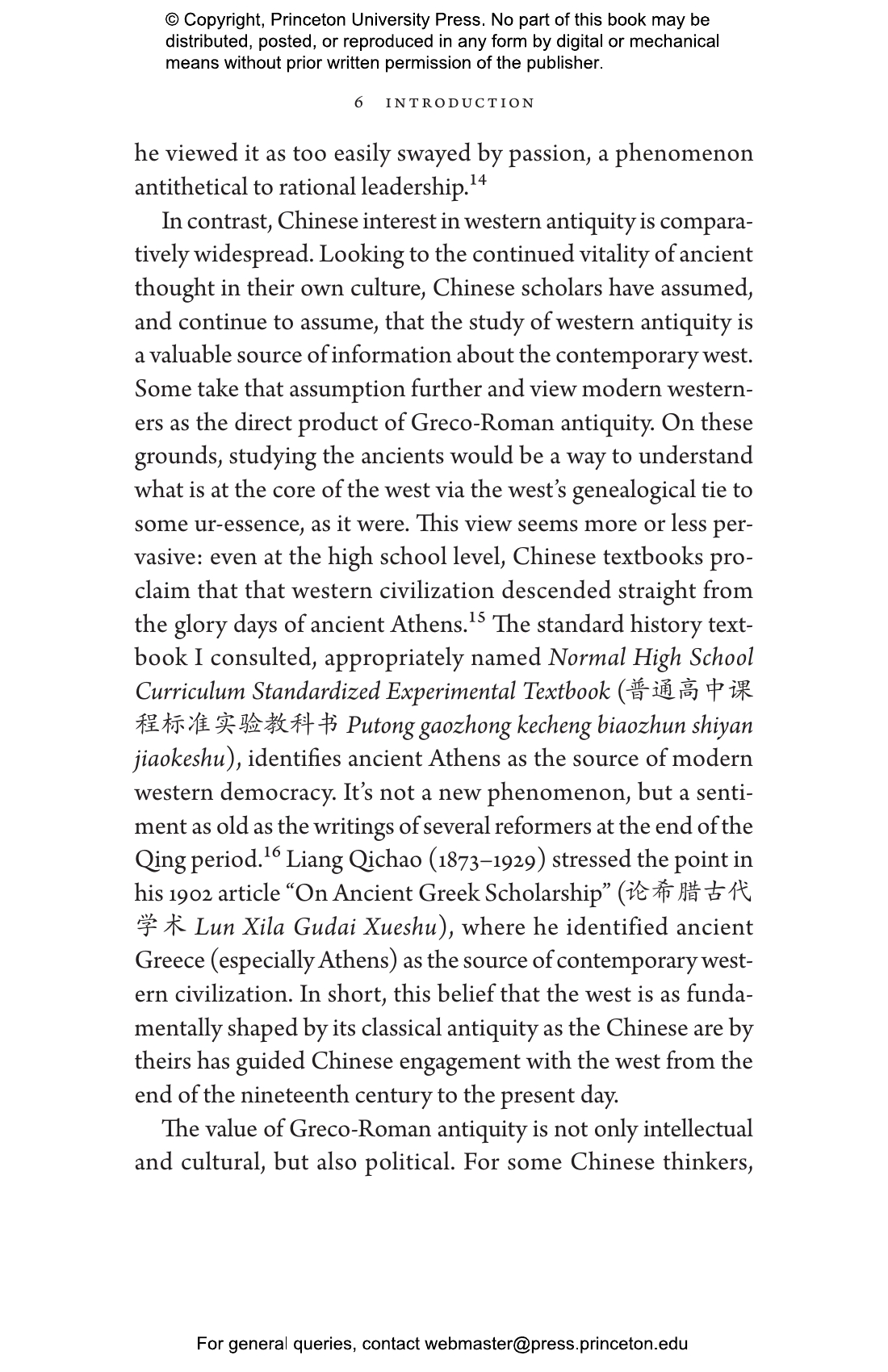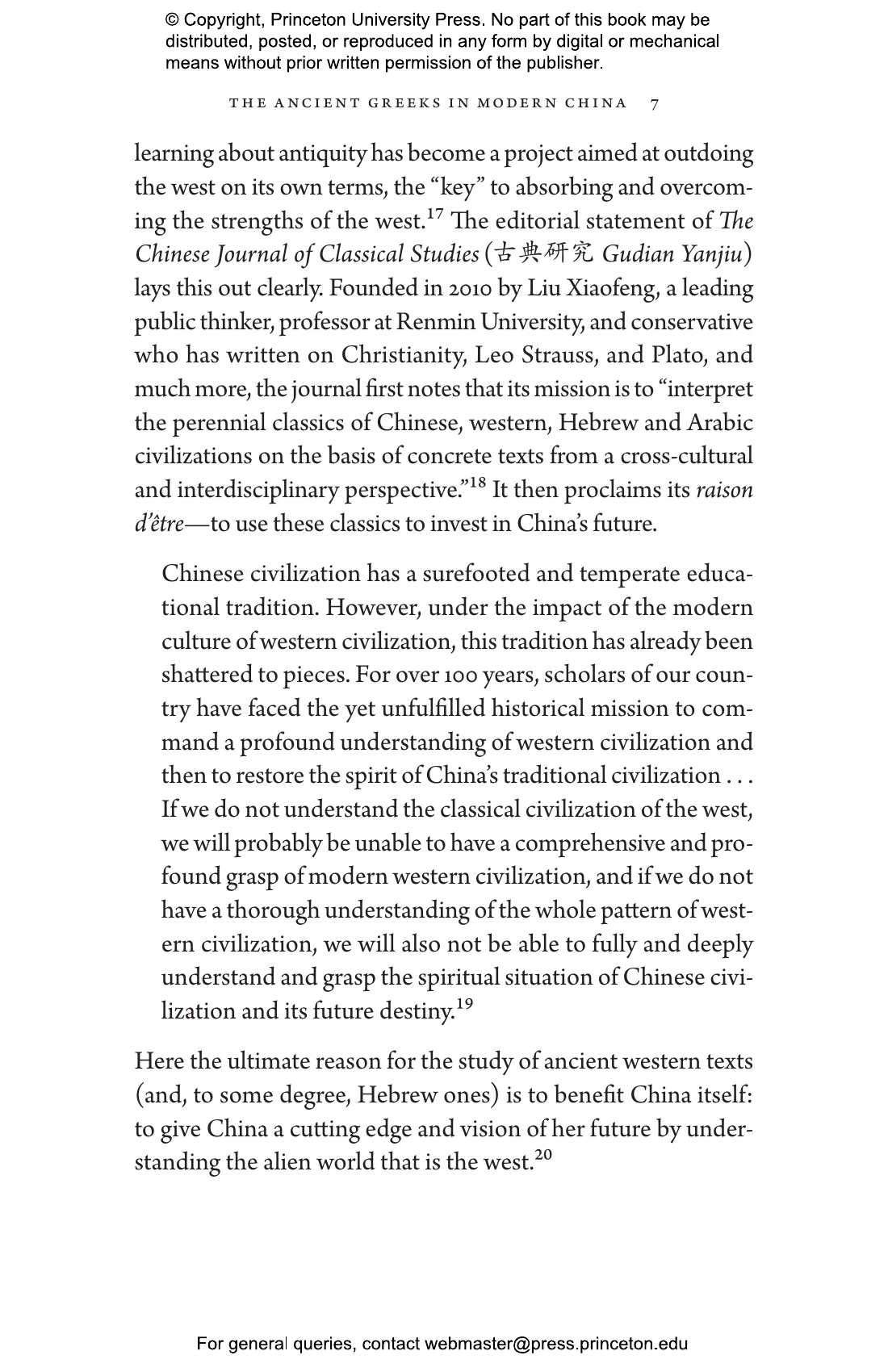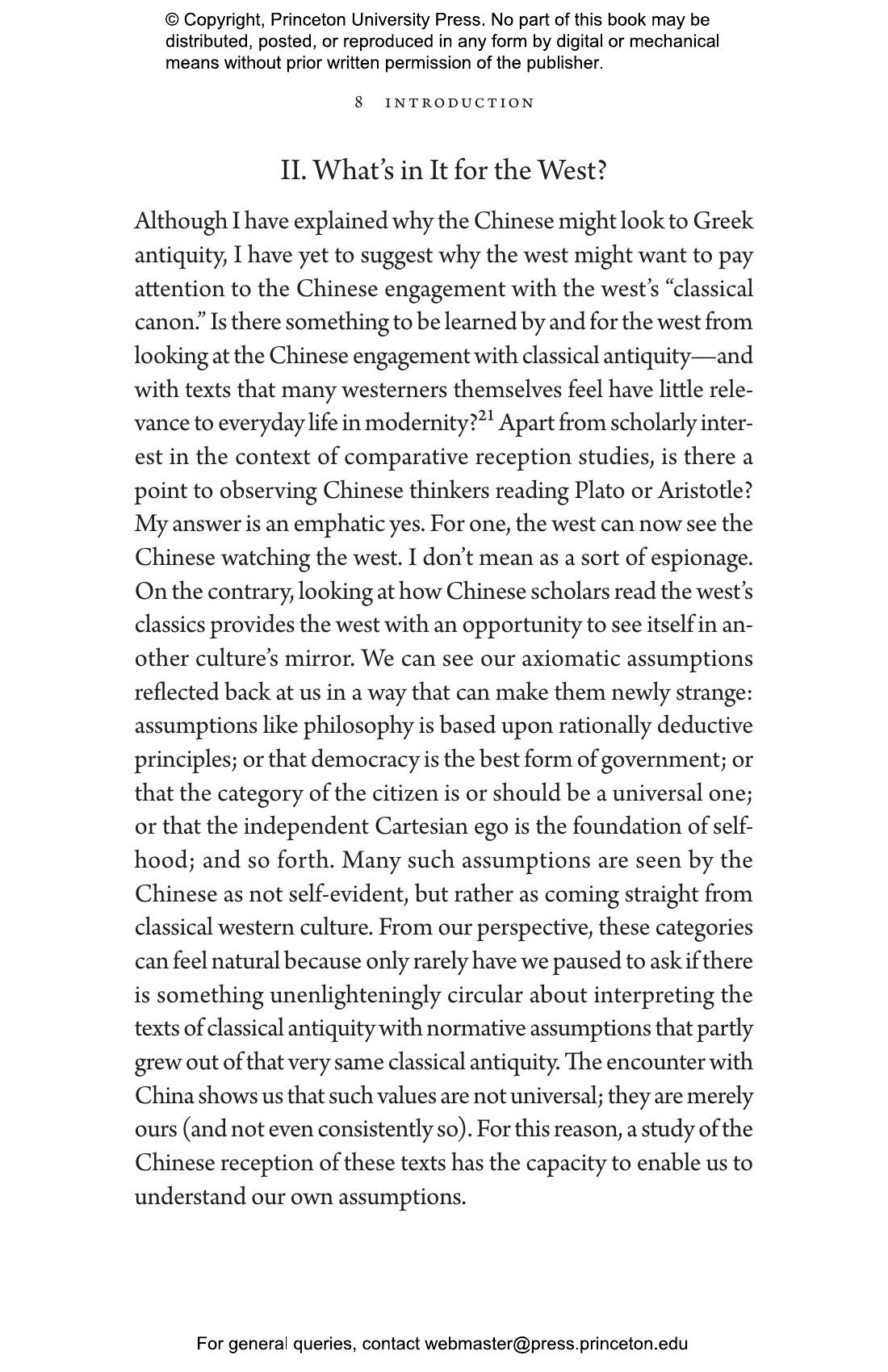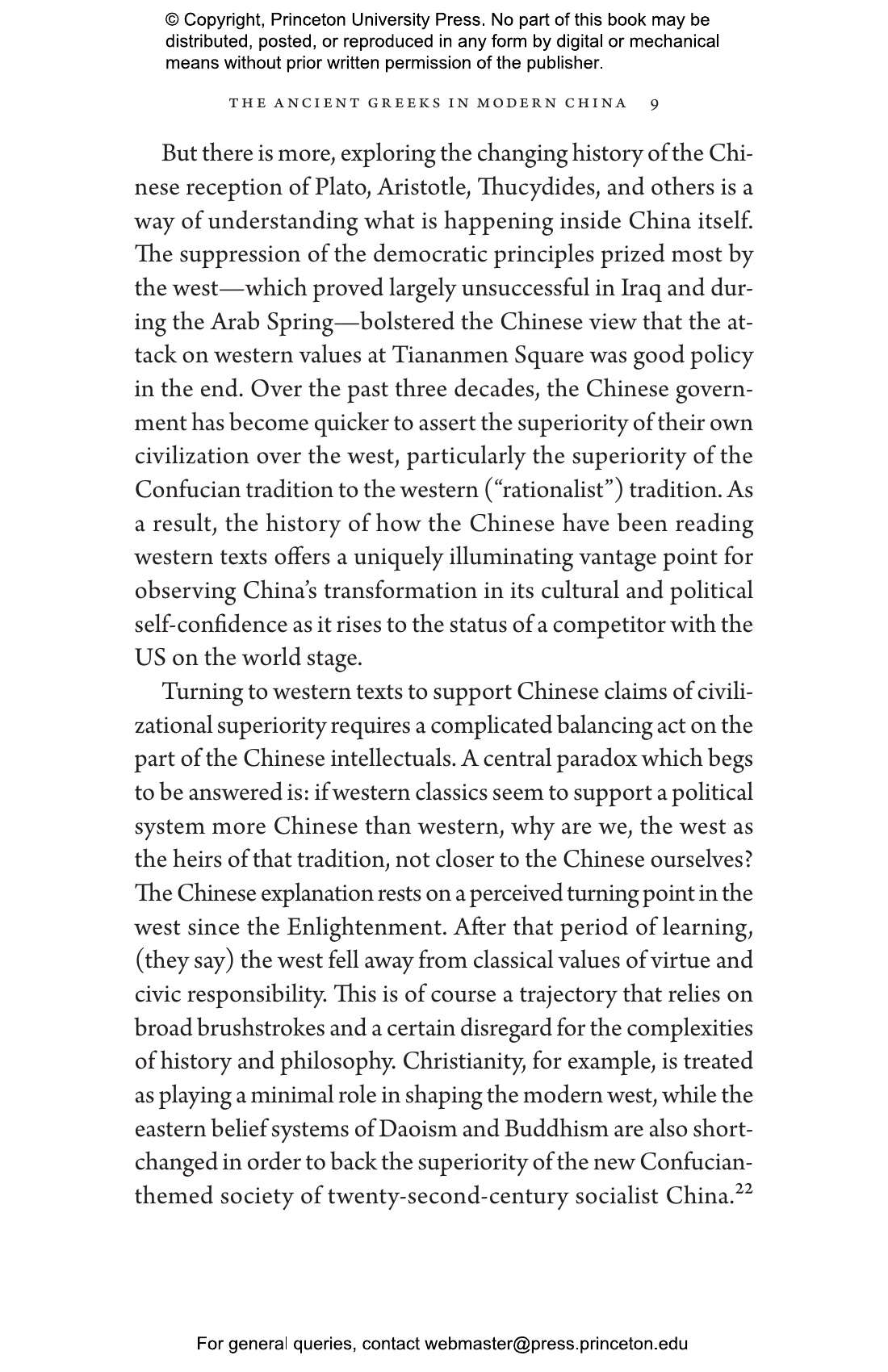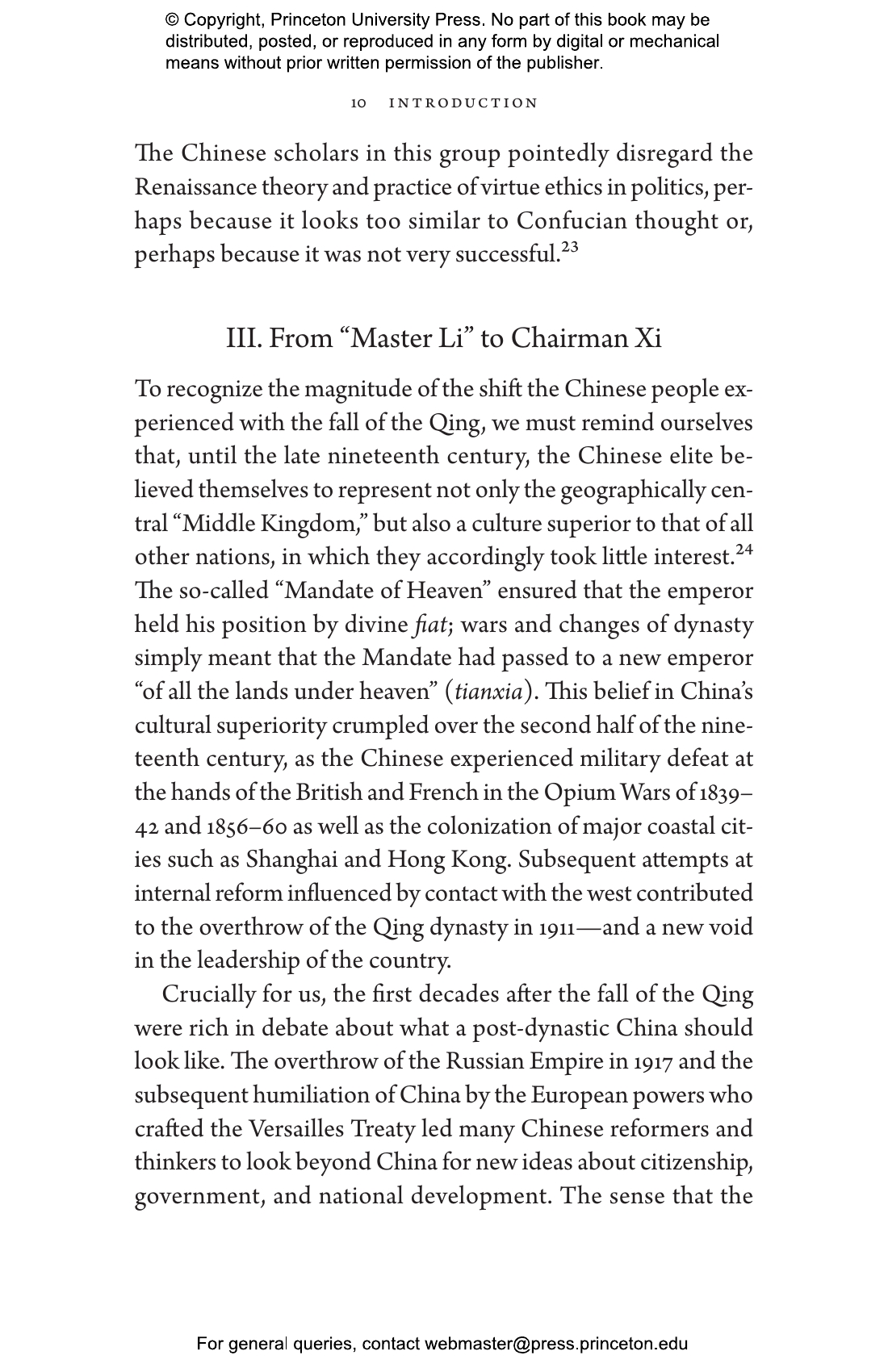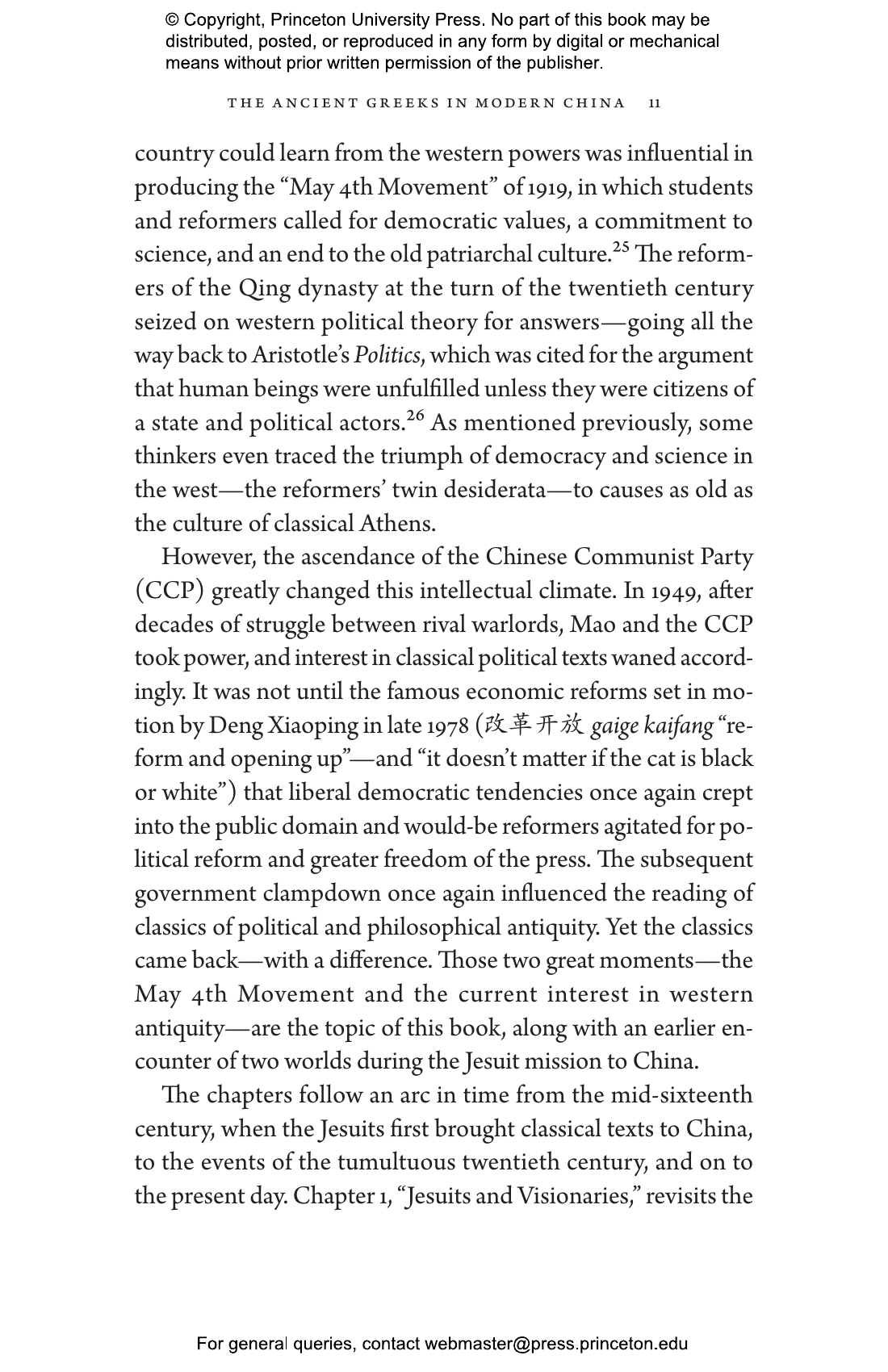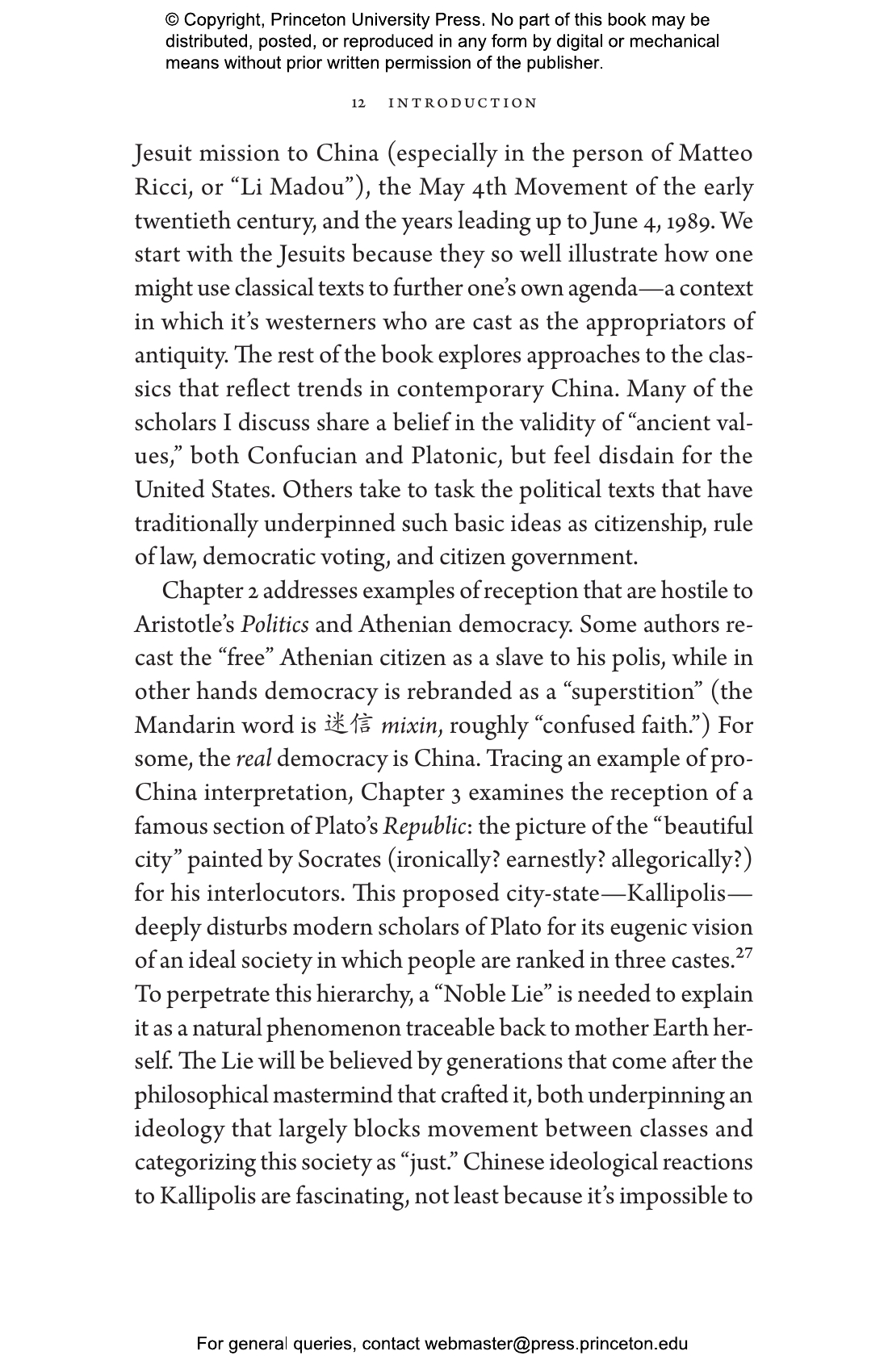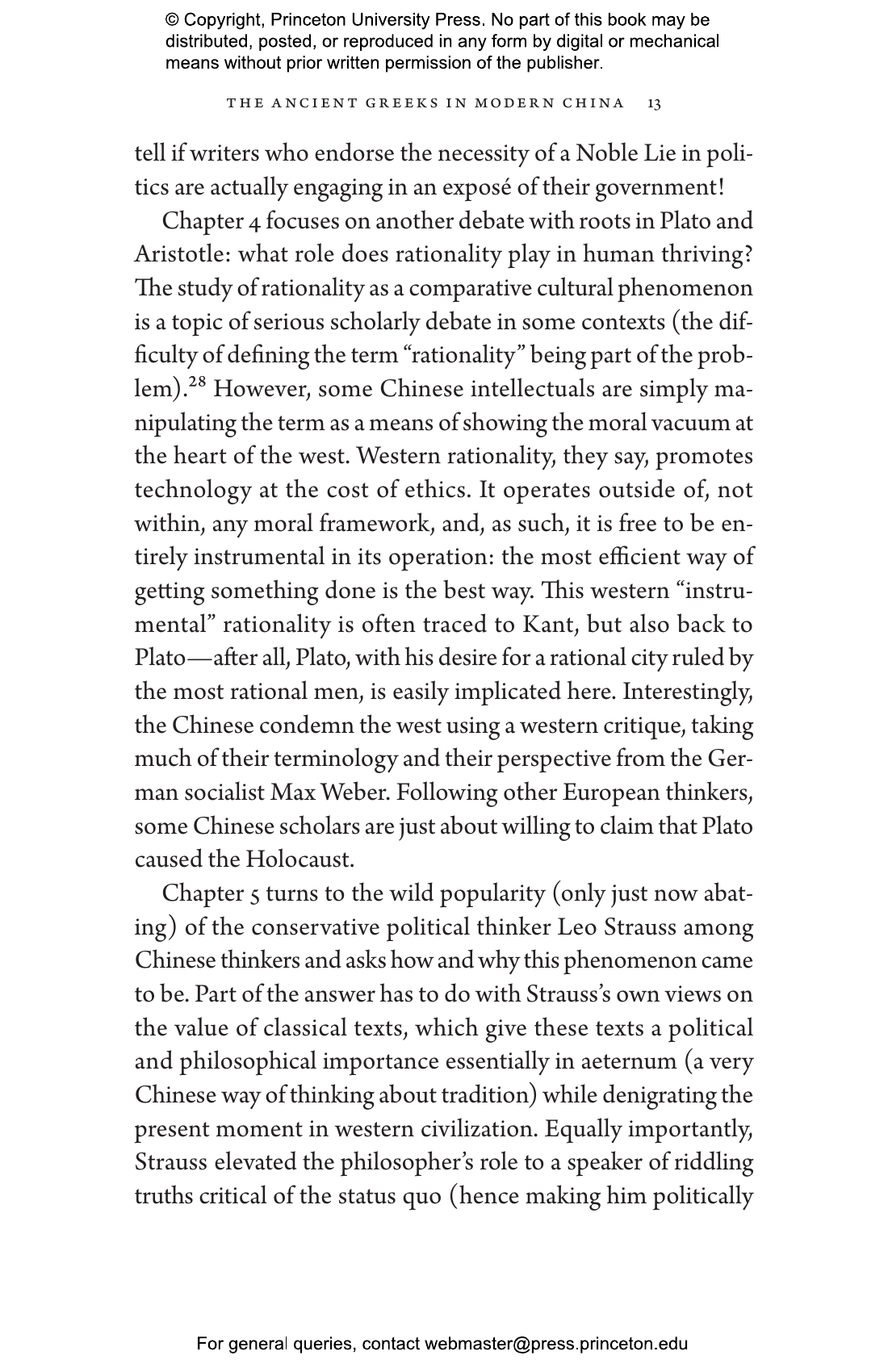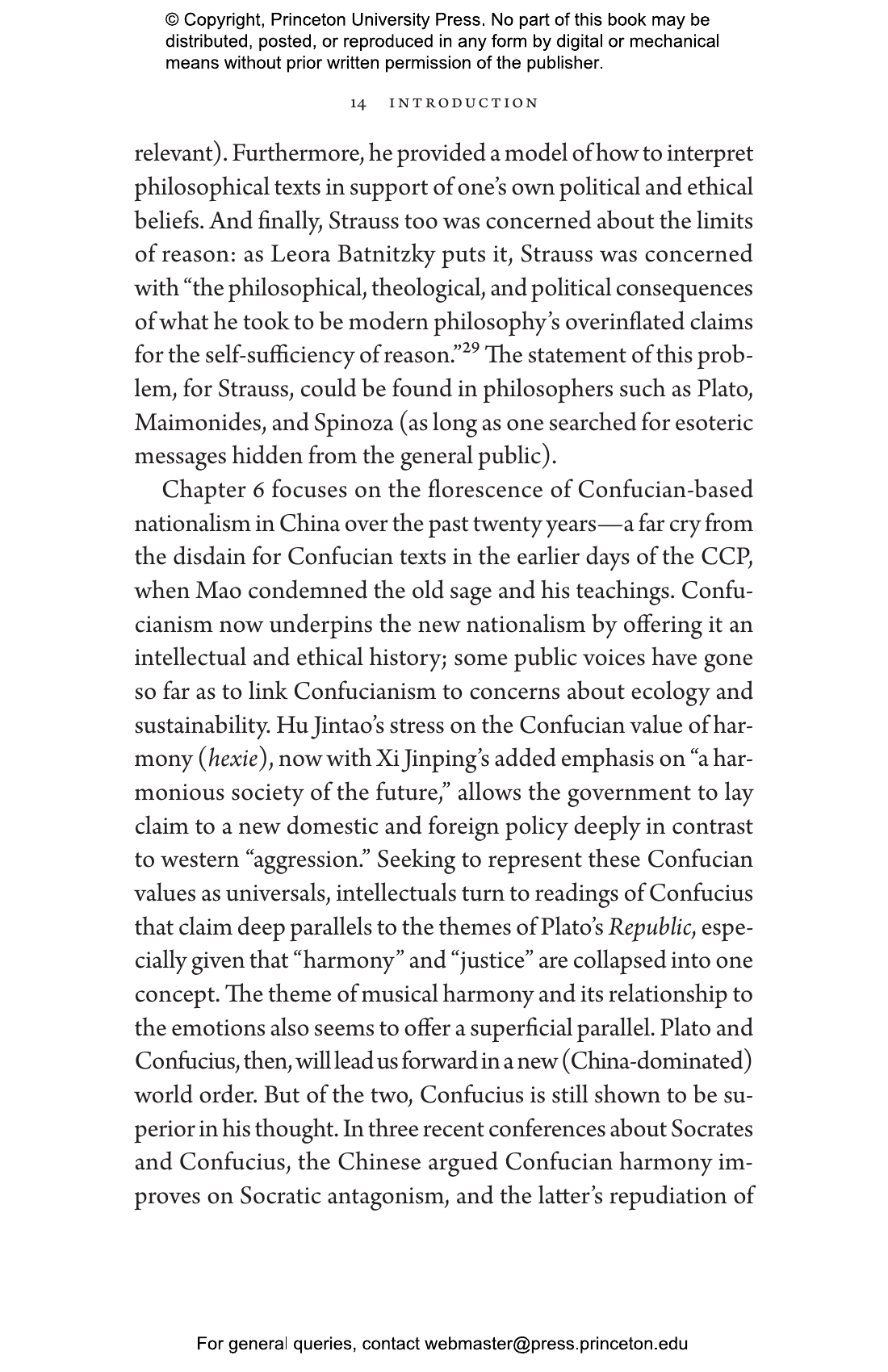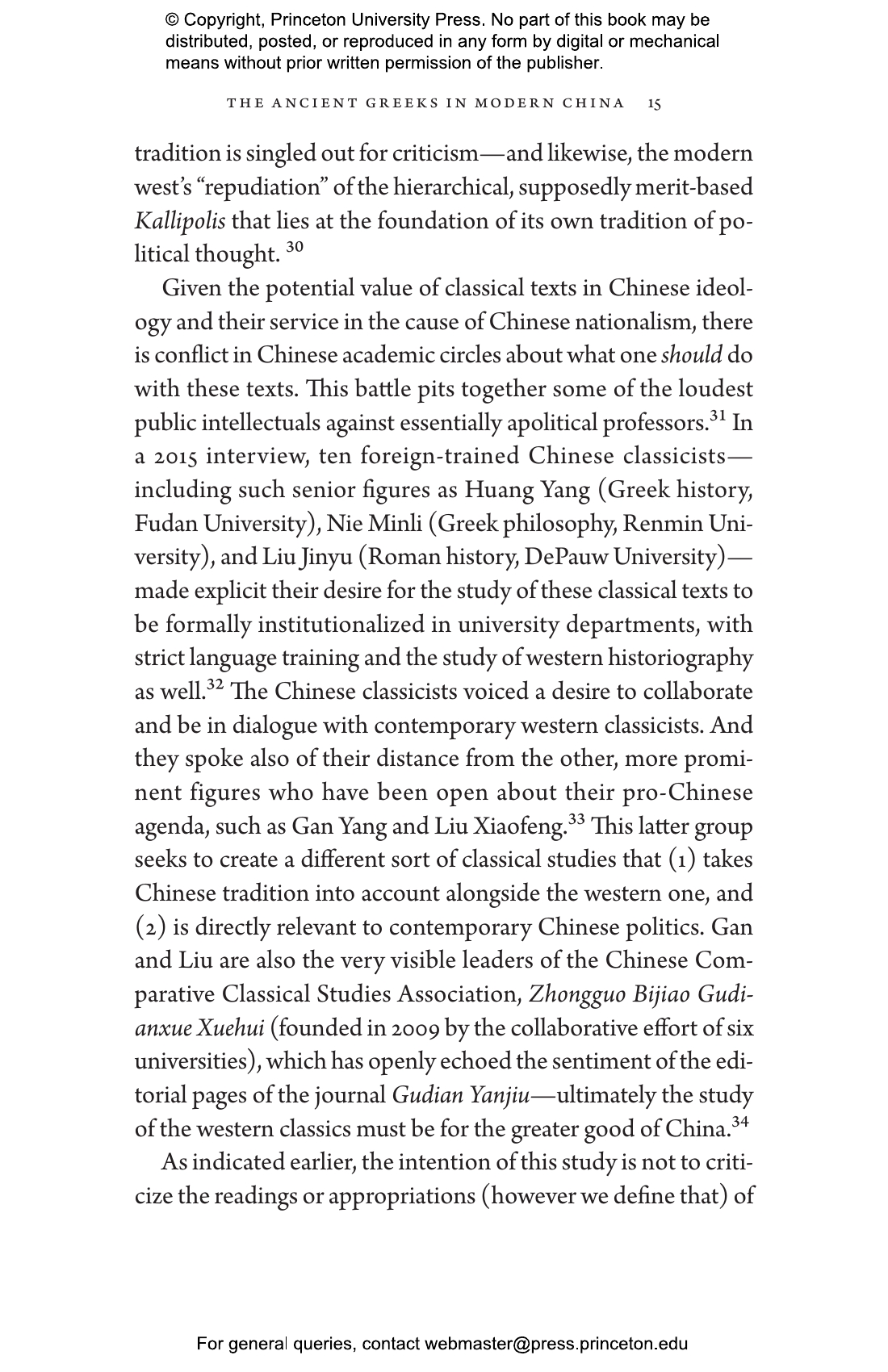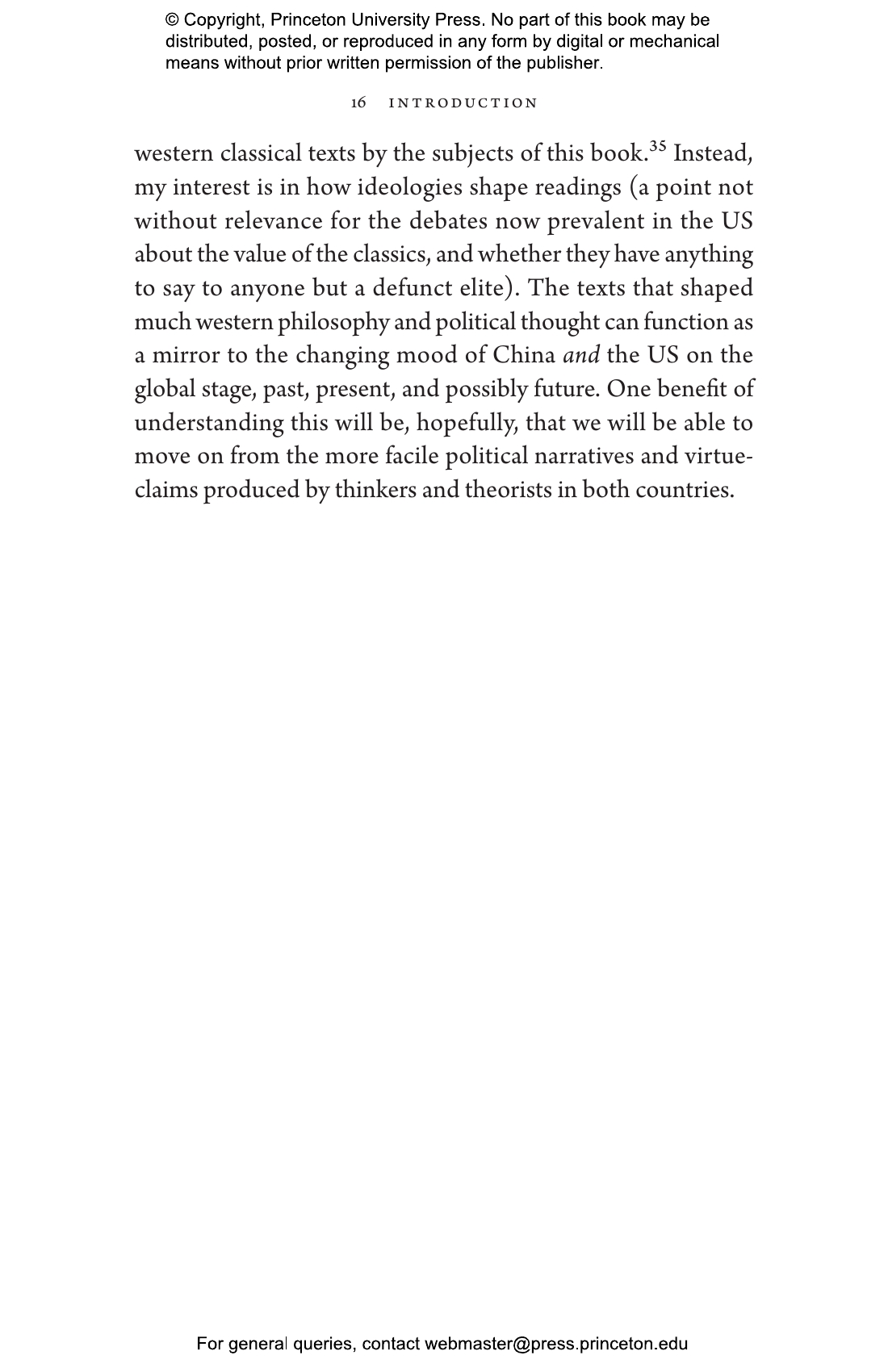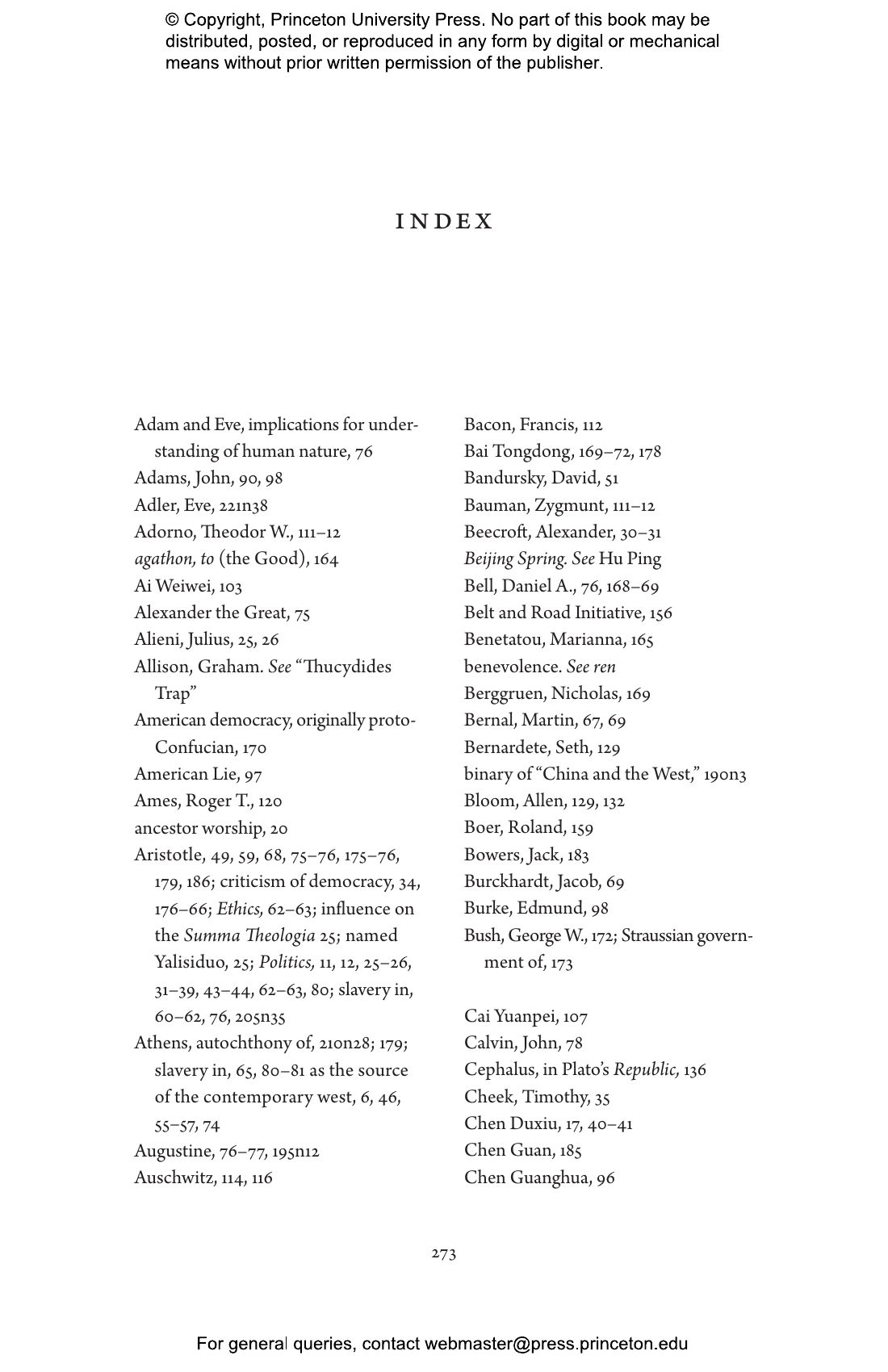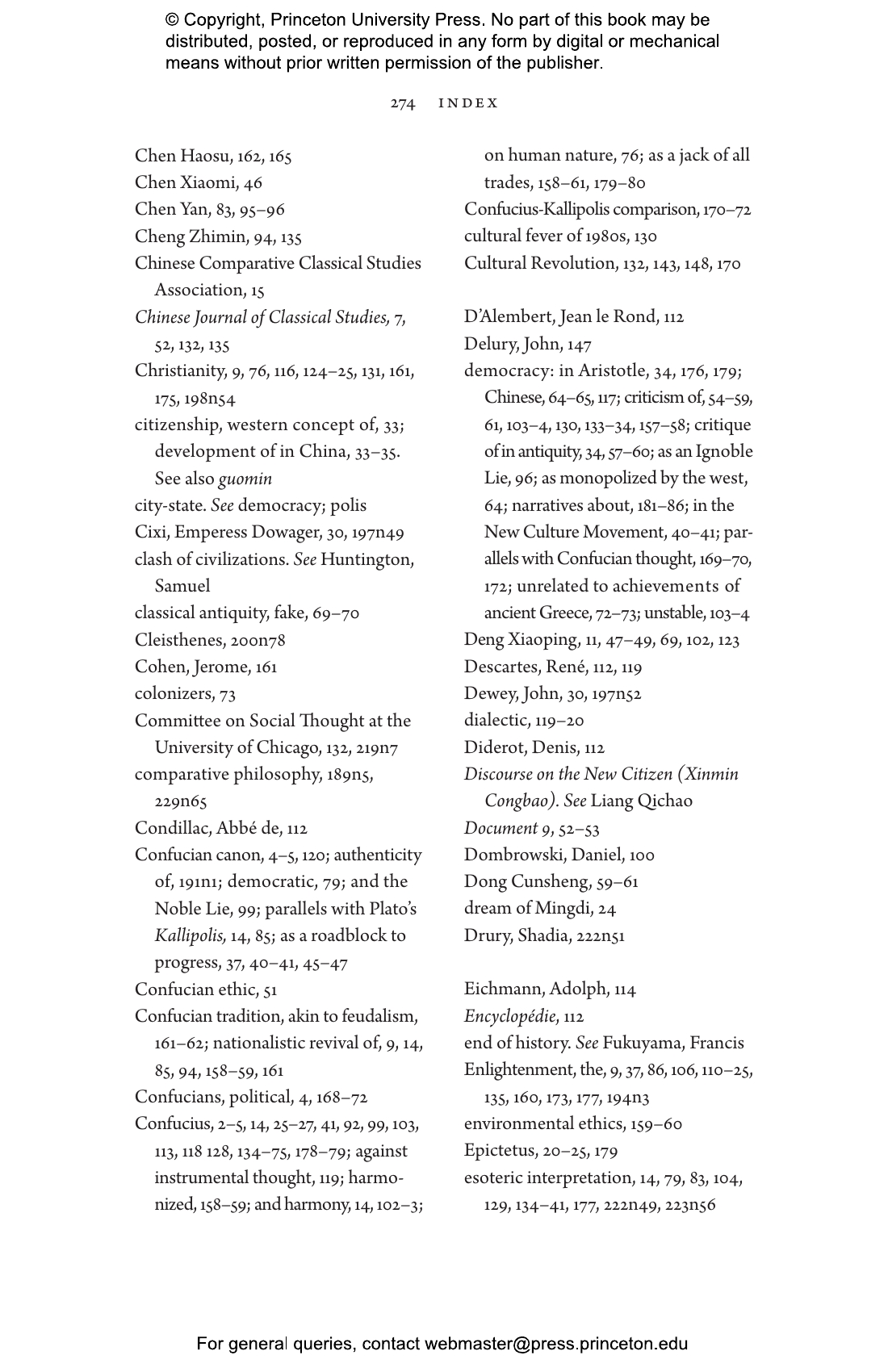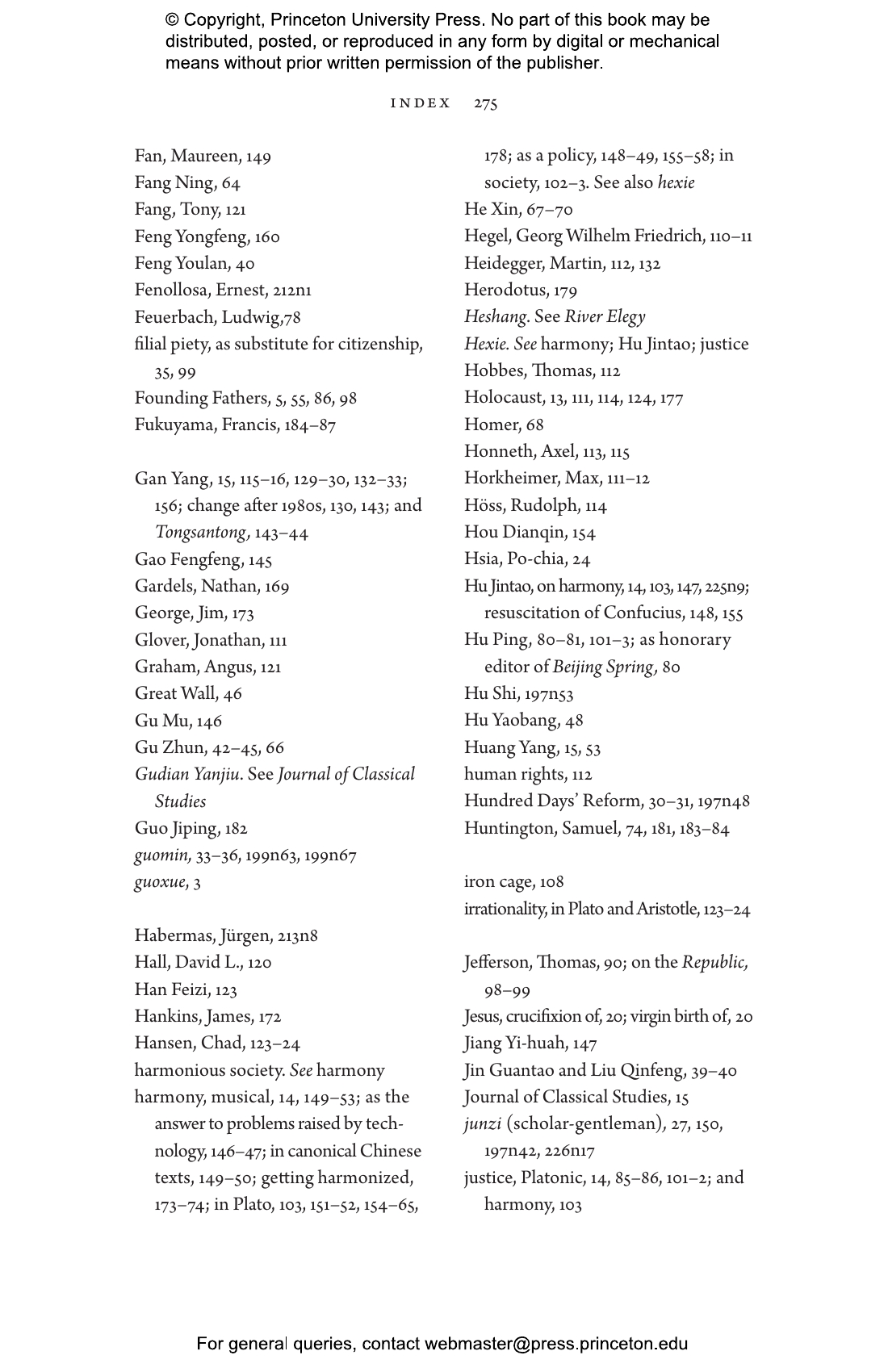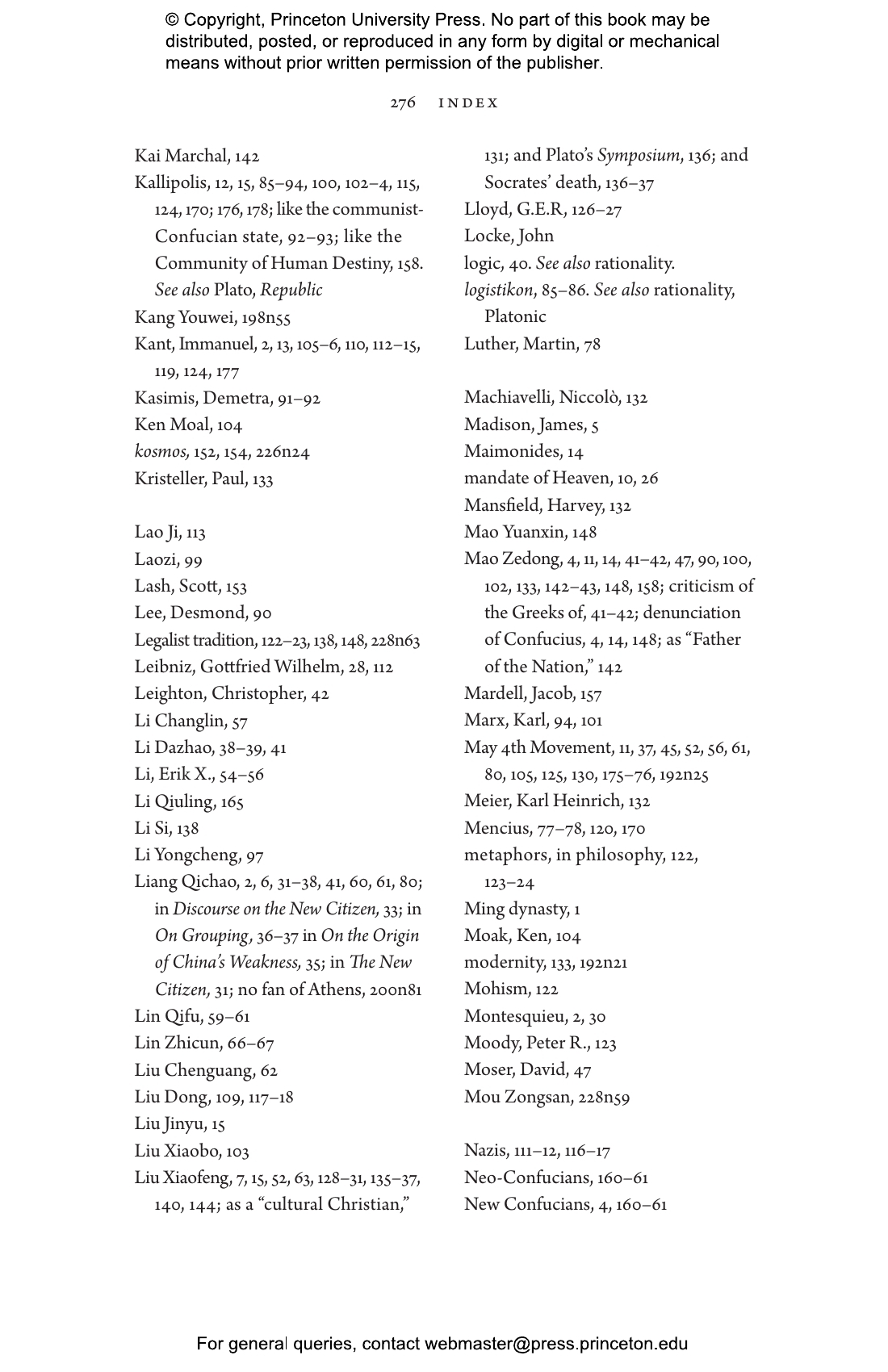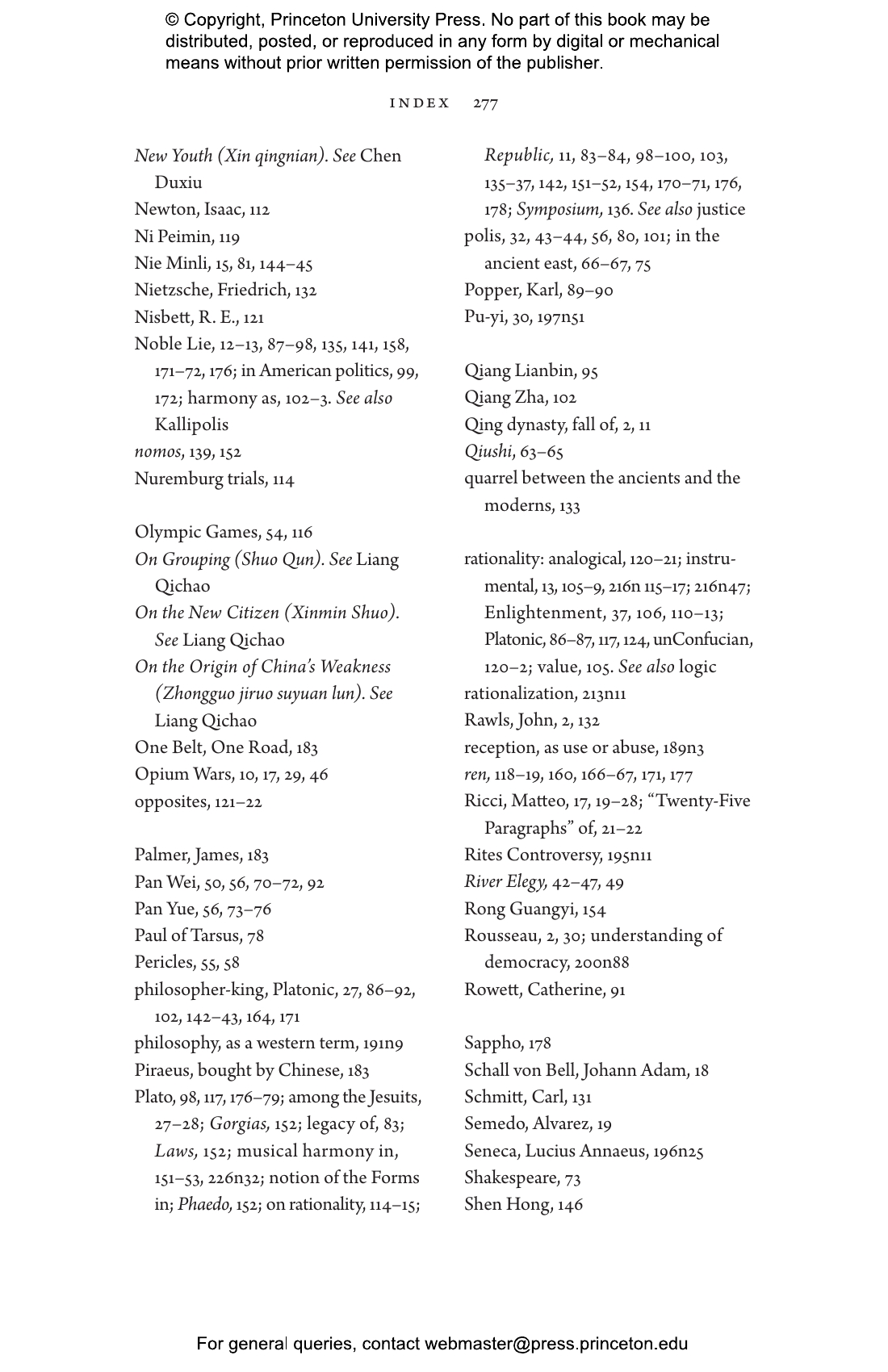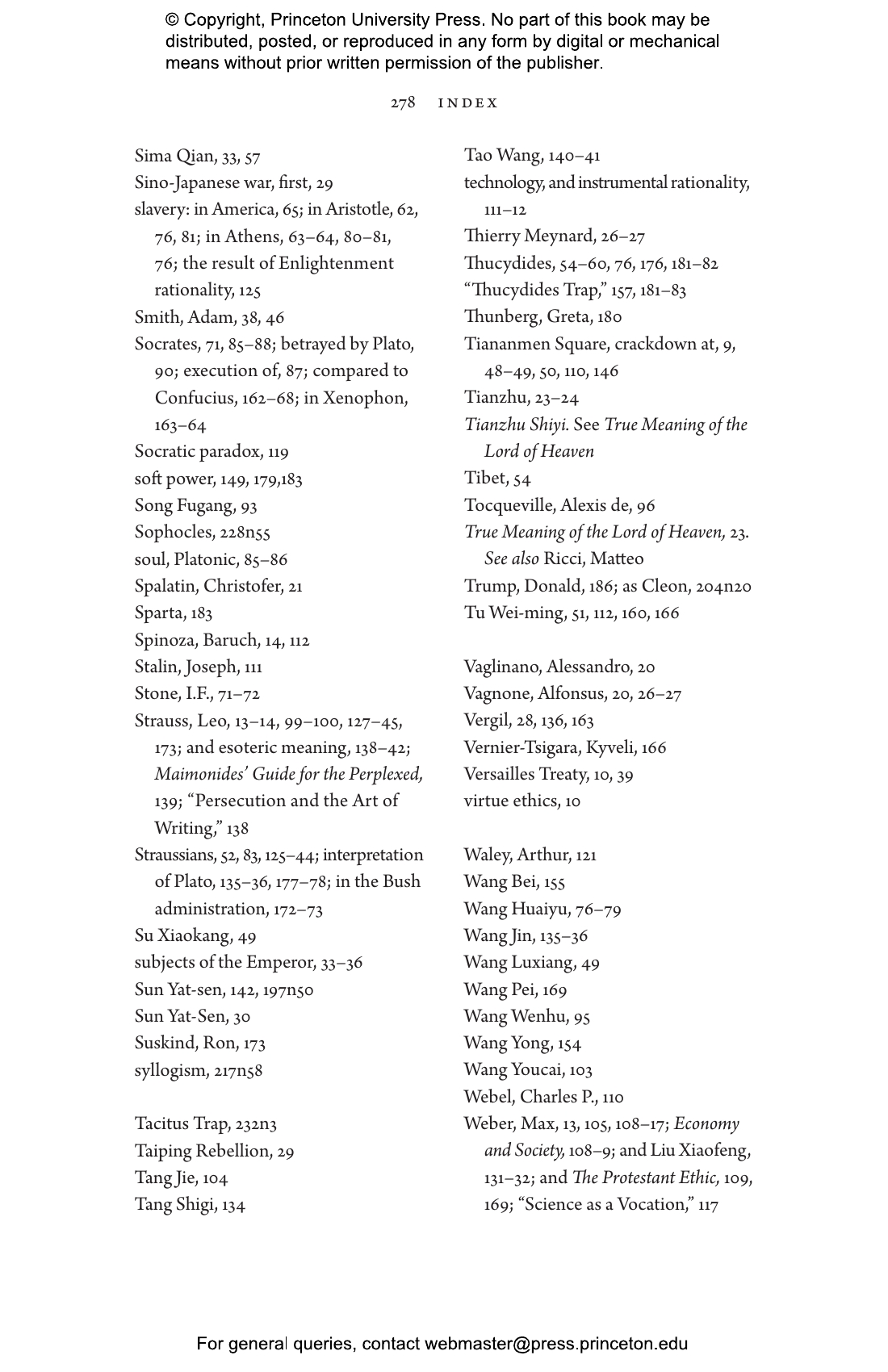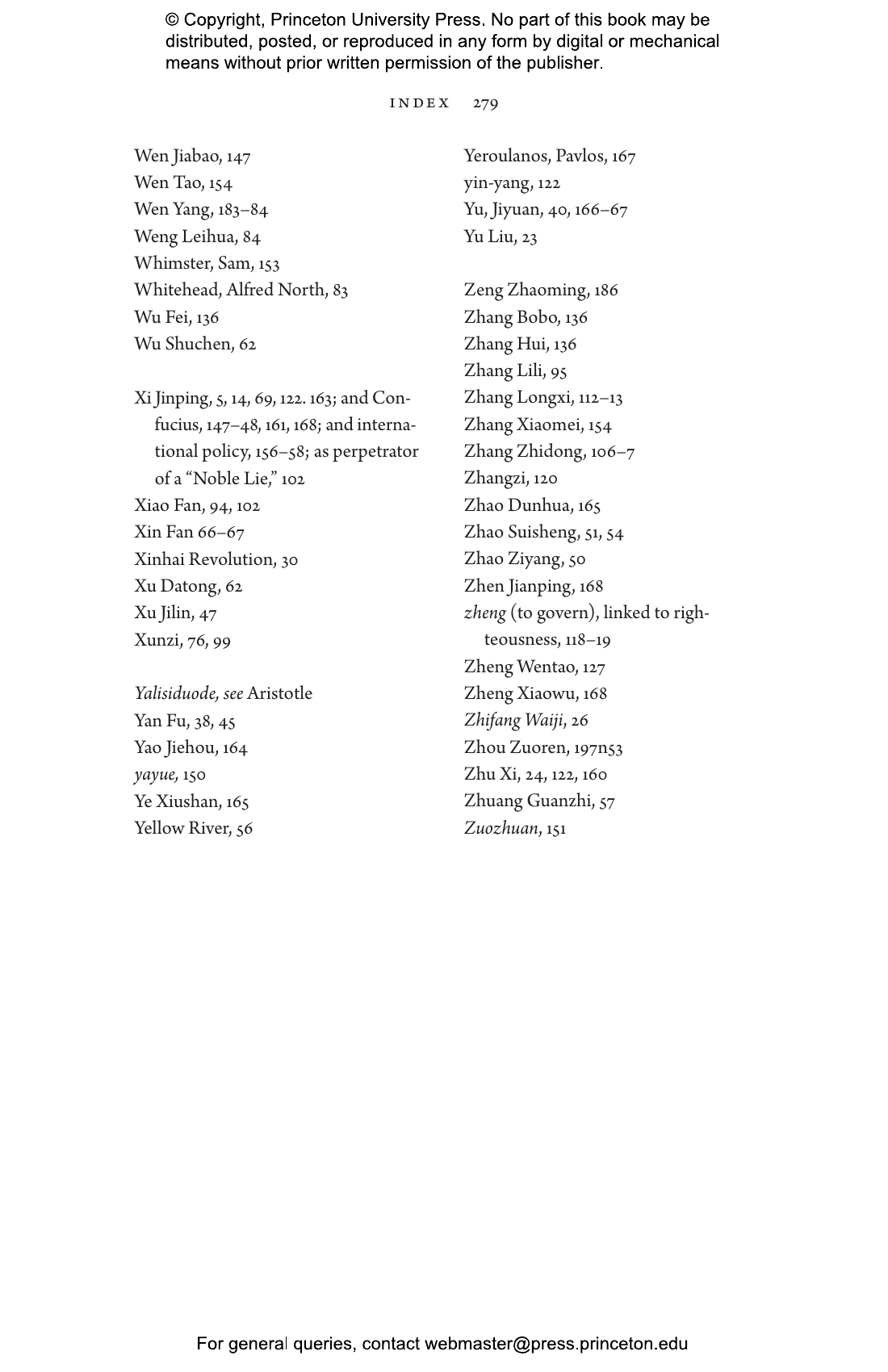As improbable as it may sound, an illuminating way to understand today’s China and how it views the West is to look at the astonishing ways Chinese intellectuals are interpreting—or is it misinterpreting?—the Greek classics. In Plato Goes to China, Shadi Bartsch offers a provocative look at Chinese politics and ideology by exploring Chinese readings of Plato, Aristotle, Thucydides, and other ancient writers. She shows how Chinese thinkers have dramatically recast the Greek classics to support China’s political agenda, diagnose the ills of the West, and assert the superiority of China’s own Confucian classical tradition.
In a lively account that ranges from the Jesuits to Xi Jinping, Bartsch traces how the fortunes of the Greek classics have changed in China since the seventeenth century. Before the Tiananmen Square crackdown, the Chinese typically read Greek philosophy and political theory in order to promote democratic reform or discover the secrets of the success of Western democracy and science. No longer. Today, many Chinese intellectuals use these texts to critique concepts such as democracy, citizenship, and rationality. Plato’s “Noble Lie,” in which citizens are kept in their castes through deception, is lauded; Aristotle’s Politics is seen as civic brainwashing; and Thucydides’s criticism of Athenian democracy is applied to modern America.
What do antiquity’s “dead white men” have left to teach? By uncovering the unusual ways Chinese thinkers are answering that question, Plato Goes to China opens a surprising new window on China today.
Awards and Recognition
- A Seminary Co-Op Notable Book of the Year
"A revelatory look at how China uses, and sometimes abuses, classical thought. . . . Like Plato’s dialogues themselves, [this book] breathes with drama."—Sean Durns, Washington Examiner
"A valuable volume."—Rana Mitter, Times Literary Supplement
"Bartsch’s work is especially fitting for our time."—Jesse Russell, The Federalist
"Masterful. . . .There is so much to unpack in Bartsch’s deeply researched book."—Michael Sheridan, Engelsberg Ideas
"Original and penetrating."—Paul Cartledge, Classics for All
"A critical, highly relevant journey into China through scholars’ interpretations of the ancient Greeks."—Choice Reviews
“In China, the classics are alive, shaping how people think about contemporary society and politics. The revival of Chinese classics has been well-documented. Surprisingly, the Greek classics also provide inspiration for Chinese intellectuals, political reformers, and, more recently, defenders of the status quo. Shadi Bartsch’s masterful study illuminates this fascinating cross-cultural encounter. It’s impossible not to learn from her strikingly original book.”—Daniel A. Bell, author of The China Model
“A stirring book, Plato Goes to China reflects the complexities that occur as different societies regard one another—and themselves—through the lens of great ideas. The book will be rewarding for anyone interested in the debates about ancient ideas now unfolding in China and the West.”—Joshua Cooper Ramo, author of The Seventh Sense
“This brilliant study tells the story of how, throughout the twentieth century, Chinese political, cultural, and intellectual leaders used ancient Greek texts, especially Plato, to understand China’s past weaknesses and to bring about its future greatness. Anyone interested in the problems of intercultural transmission, and of the understandings and misunderstandings that permeate the epidemiology of ideas, will have much to learn from this startlingly original analysis. For those concerned with any aspect of policymaking as China grows its global power and influence, this book is required reading.”—G.E.R. Lloyd, University of Cambridge
“This is a fascinating account of the uses and abuses of ancient texts by public intellectuals in China and the United States. Bartsch shows the banality of using ancient texts to make a case for or against contemporary political practices, but she also illustrates the timelessness of the human desire to discover means by which political power can be allied with virtue and wisdom instead of corruption and self-interest.”—Shadia Drury, author of The Bleak Political Implications of Socratic Religion
“This is a riveting exploration of modern Chinese political commentary by a distinguished scholar of ancient Roman and Greek thought. Going far beyond the comparative study of Greek and Chinese philosophy, Bartsch offers a meditation with multiple themes, including how enshrining ancient works as classical is worked into modern identities in China and the West and how contemporary Chinese antidemocracy ideologues reshape their readings of Aristotle and Plato (as well as Mencius and Xunzi) to serve their purposes.”—Pamela Kyle Crossley, author of What Is Global History?
“In China, origins are destiny, and Chinese intellectuals have long considered Greco-Roman antiquity a key to understanding the present-day Western world. In this original and engaging book, Shadi Bartsch shows how the Chinese over the past century and more have used classical antiquity to define the nature of Western civilization and to distinguish the special characteristics of their own. An important book that every student of the cultural rivalry between East and West should read.”—James Hankins, author of Virtue Politics
